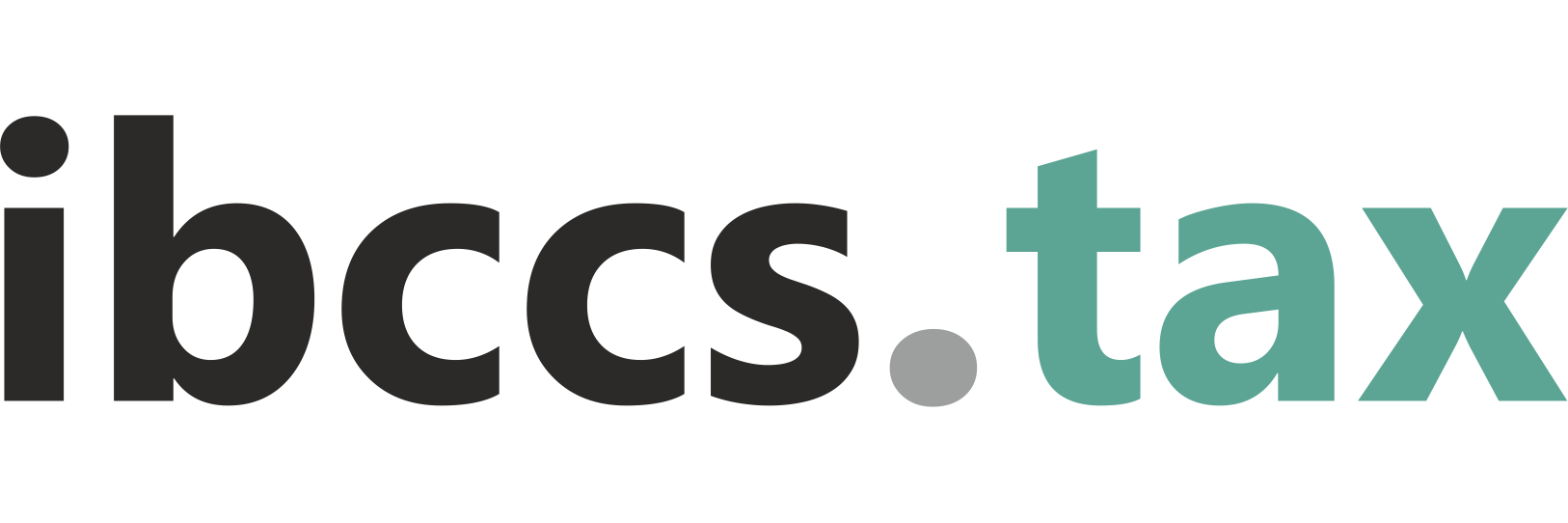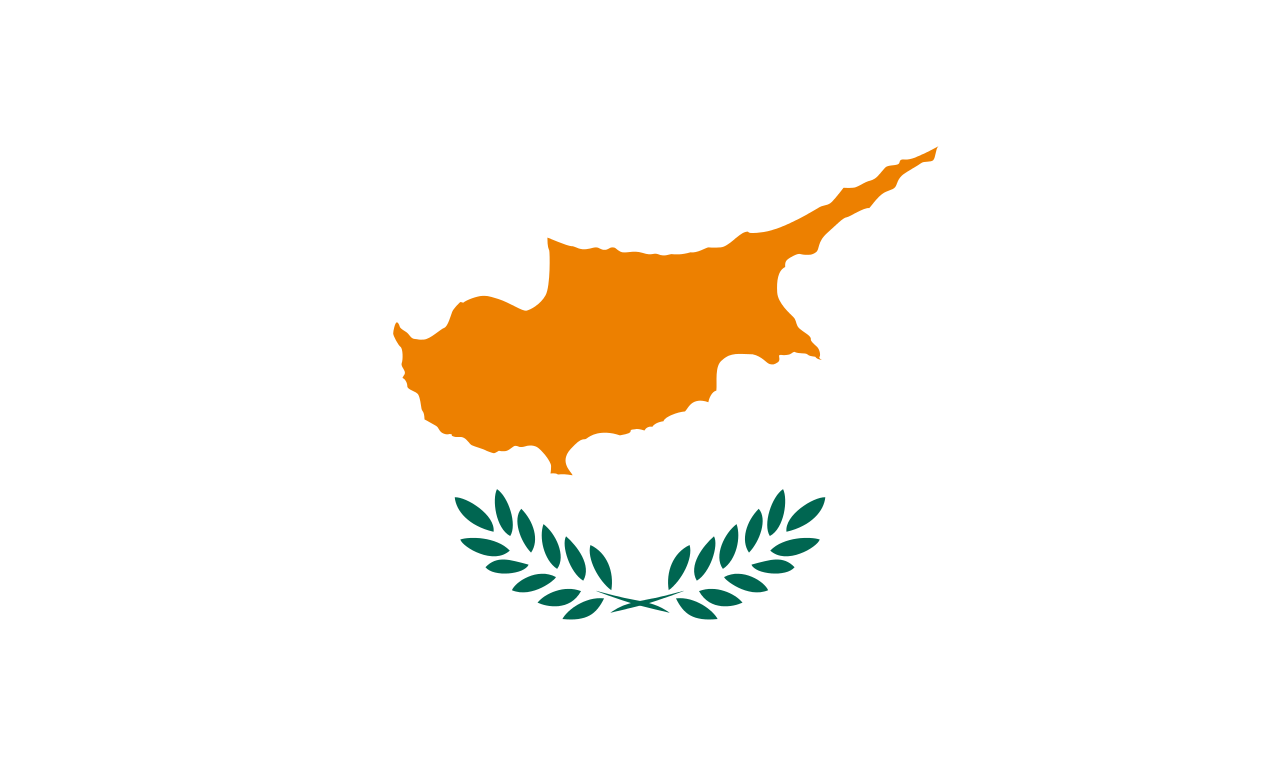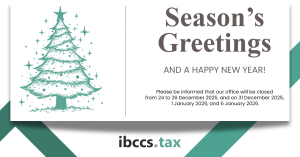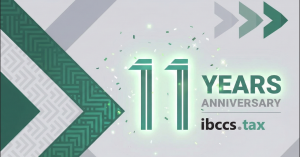The Cyprus Tax Department issued Circular 4/2024 in July 2024, regarding the exemption from income tax of 50% of the remuneration from employment exercised in Cyprus, as per the amended Article 8(23A) of the Income Tax Law.
We were writing about the new expatriate relief (introduced on 30 June 2023) in our article: https://ibccs.tax/50-expatriate-relief-on-employment-income-in-cyprus-new-tax-incentive-law-now-published/
The Circular provides the necessary clarifications whether the incentive under Article 8(23A) could be granted.
The document comes with an extensive number of practical examples (26), covering many details and questions from taxpayers and their employers. It explains the term “beginning of first employment in the Republic”and the transitional provision (employment before 2022).
The Circular is available in Greek only. Our Team translated its content to get a better understanding of the interpretation of the rules by the Tax Department.
We highlight some of the examples by the Tax Department
Table of Contents
ToggleExample 1
An individual who was employed in the Republic under a three-month contract from 01/06/2009 to 31/08/2009 begins working for Company A on 01/09/2022. The individual’s employment period from 01/06/2009 to 31/08/2009 falls within the fifteen (15) consecutive tax years preceding the commencement of their employment with Company A. Therefore, even though the individual was employed for only 92 days in 2009, their employment with Company A starting on 01/09/2022 is not considered their first employment in the Republic.
Example 2
A person was employed in the Republic from 01/09/1994 to 30/08/2008 On 19/07/2008, he left the Republic and stayed abroad until 30/11/2023. On 01/02/2024 he was employed by Company A.
In this case, the individual’s employment in the Republic from 1994-2008 does not fall within the fifteen (15) consecutive tax years preceding the year he started working at Company A. Therefore, his employment with Company A on 01/02/2024 is considered his first employment in the Republic.
Example 3
An individual who had not been employed in the Republic until 2016 began working for a foreign employer outside the Republic on 01/02/2017. During this employment, the individual occasionally traveled to the Republic, where the individual provided services to their employer for an average total of 3 months per tax year. On 1/9/2022, the individual ended the employment with the foreign employer and started working for company A.
In this scenario, the commencement of employment with Company A does not qualify as the individual’s first employment. This is because, within the fifteen (15) consecutive tax years preceding the start date with Company A, the individual rendered billable services within the Republic, albeit to a foreign employer.
Example 5
An individual who had not been employed in the Republic until 2021 relocated to the Republic on 01/11/2022 while still employed by a foreign employer without a permanent establishment in the Republic. From the Republic, the individual will remotely provide billable services to the foreign employer. In this scenario, the date of the individual’s relocation to the Republic is considered the commencement date of their first employment in the Republic.
Example 6
An individual, who had not been employed in the Republic until 2021, established residency in the Republic on 01/09/2022 and began providing services as a self-employed. Subsequently, on 01/10/2023, the individual commenced employment with Company A. In this case, the individual’s first employment start date in the Republic is considered to be 01/10/2023.
The following example clarifies what is meant by “remuneration from employment in the Republic.” For the purposes of these examples, any references to companies imply that they have their tax residency in the Republic, unless otherwise specified.
Examples illustrating the calculation of the remuneration
Example 14
An individual commenced the first employment in the Republic on 07/01/2023 with an annual salary of €80,000. Throughout the first year of employment, the annual salary remained unchanged. The individual qualifies for the exemption as their remuneration from employment in the Republic exceeds €55,000 during the initial twelve-month period from 01/07/2023 to 30/06/2024.
The individual is also eligible for the exemption in 2023. Although the actual remuneration for 2023 amounts to less than €55,000 (€80,000 * 6/12 = €40,000), the total remuneration for the first 12 months of employment exceeds €55,000 (€80,000).
Example 15
Similar to Example 14, the individual concludes the initial employment in the Republic on 31/01/2024, having worked for a total of 7 months. In February 2024, the individual remained in the Republic as unemployed. Then the individual left the republic and did not return until 30/06/2025.
The individual is not eligible for the exemption, despite having an annual remuneration exceeding €55,000 according to the employment contract, the earnings from the employment in the Republic do not surpass the €55,000 in the first year following the commencement of the initial employment in the Republic (from 1 January to 30 June 2024: €80,000 * 7/12 = €46,667) or in the second year (from 1 July 2024 to 30 June 2025: during which the individual was outside the Republic).
Example 17
Similar to Example 16, if the individual is notified of an increase (annual salary) on 01/06/2024—two years after the start of their first employment in the Republic-and is also retroactively compensated for the increase for the period from 01/09/2023 to 31/05/2024, the individual will not qualify for the exemption. The exemption cannot be claimed for any year, as the salary increase exceeding €55,000 was communicated after the two-year period from the commencement of their first employment in the Republic.
The individual is ineligible for the exemption and cannot claim it for any year, as the increase in the annual remuneration exceeding €55,000 was communicated more than two years after the commencement of the first employment in the Republic. It should be noted that this policy also applies if the pay increase is notified within two years from the start of employment but is retroactively paid after the 24-month period.
Examples illustrating the application of the Exemption under transitional provisions
Example 21
An individual who qualified for the exemption under Article 8(23) commenced the first employment in the Republic on 01/01/2023. On 01/06/2017, without terminating the initial employment contract, the individual was assigned by their employer to provide services abroad for another company within the same consolidated group for a period of three years. On 31/05/2020, the individual returned to the Republic and resumed the employment with the initial employer.
The individual is not eligible for the 8(23A) exemption, although they qualified for the 8(23) exemptions, their employment in the Republic was not continuous. As a result, 2022, which marks the completion of ten years from the start of their employment in the Republic, will be the final year in which they can claim the 8(23) exemptions provided the remuneration exceeds €100,000.
Example 22
An individual who previously benefited from the exemption under Article 8(23) commenced the first employment in the Republic on 01/01/2015. On 31/12/2018, this initial employment ended (for any reason). The individual then chose to take a break before commencing a new employment. On 01/02/2019, the individual started a new position with a different employer in the Republic.
The individual does not qualify for the exemption under Article 8(23A), despite having been eligible for the exemption under Article 8(23), their employment in the Republic was not continuous. As a result, 2024 will be the final year in which they can claim the Article 8(23) exemption, contingent upon their remuneration exceeding €100,000, given that this year marks the completion of the ten-year period from the commencement of their employment in the Republic.
Example 23
An individual who was not employed in the Republic prior to 2016, commenced employment with Company A on 01/01/2017, earning an annual salary of €60,000. The individual ended thei employment with Company A on 30/09/2019 and began working for Company B in the Republic on 01/10/2019.
The individual qualifies for the exemption under Article 8(23A) because the first employment in the Republic commenced between 2016 and 2021, with an annual salary exceeding €55,000. Furthermore, their employment in the Republic remained continuous from the start of their first employment until 31/12/2021, despite any employment changes within that period.
IBCCS TAX – we are at your disposal
To find out more about the content of the recent Circular, or if you have a specific question regarding your case, you can contact us directly.
Please contact us by email on info@ibccs.tax or call our office in Cyprus on +357 222 58 777.
Our Publications
Season’s Greetings and our Cyprus office opening hours
Season’s Greetings from IBCCS TAX, and best wishes for a
Read MoreIBCCS TAX Celebrates 11 Years of International Tax & Business Advisory
Time really does move fast – it feels like we’ve
Read MoreCyprus Permanent Residency by Investment: Your Ultimate 2025 Guide
Cyprus, the gem of the Mediterranean, continues to shine as
Read More




